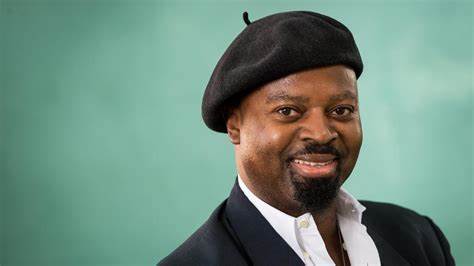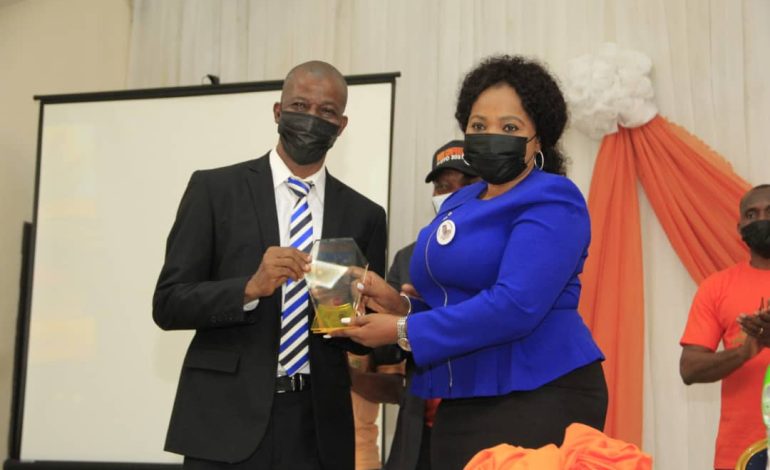Ghana’s National Theatre takes the shine at African Theatre Webinar Series

By Godwin Okondo
THE 8th edition of African Theatre Webinar Series 2021 was held and the focus was the National Theatre of Ghana’. It was organized by Associate Professor of Drama/Theatre at Makarere University, Uganda, Prof. Mercy Mirembe Ntangaare and Prof. Marion Kuester of Rustock University, Germany, had a discussion about the theatre and plans made for its business to thrive.

The webinar, which holds every third Wednesday of the month, is an avenue for theatre practitioners, researchers and teachers from different African countries to speak and share concepts of theatre and drama globally, and establish mutual and professional relationships between theatre practitioners in Africa and the rest of the world.
Among those who participated in the webinar were President of the International Drama & Theatre and Education Association (IDEA), Sanja Krsmanovic Tasic, Secretary General, Pan-African Writers Association (PAWA), Dr. Wale Okediran, and the webinar’s speaker and Executive Director of the National Theatre of Ghana, Amy Appiah Frimpong.
Tasic spoke briefly on the Online World Theatre Festival hosted by IDEA in Serbia on August 28 and 29, 2021, saying; “I would like to say thank you to everyone who participated or spared little time to join us in enjoying the programme. This isn’t just IDEA’s programme, it belongs to the international theatre community within and outside IDEA and it couldn’t be possible without your participation.”
According to her; “Theatre artists from all over the world were able to showcase their works and performances through webinars, workshops, documentaries and theatre-related artworks.”
Okediran introduced the speaker after welcoming everyone present, noting; “Amy has 40 years of experience working in the arts. She has acted on stage and she also served as a Senior Programme Officer for Minnesota State Arts Board for 10 years.”
Frimpong kicked off the first seminar with a discussion on the National Theatre of Ghana, and shared slides on their plans and strategies.
“The theatre has a resident group that deals with dance, drama and symphony,” she said. “The theatre also holds concert parties, funworld, highlife time, kidsfest, Wednesday dramas and talk party, and we also rent out spaces.
“For our first goal, we want to inspire artistic experiences by providing high quality, artistic works — a total theatre production. Each resident group should produce at least two works each year, and make sure the productions are benchmarked against the mandate of the theatre. We also want to make touring a key component of production planning.
“We want to nurture a strong administrative structure and fiscal responsibility by creating an effective administrative structure, developing strong governance and management capabilities, creating funds for the creation of works each year, and create a friendly and serene operational environment to build customer confidence.
“We want to engage and enrich our communities by developing a vibrant artistic culture, strong arts in education programming, achieving documentation of works and production, and support a vibrant and diverse performing arts sector. We want to get people excited to see the next production.”
Continuing, Frimong said; “We want to attract and retain our audiences, deepen and broaden our relationship with them, increase accessibility, and look for programmes that would be enjoyed by everyone. Building healthy and committed staff is also important. We will strengthen professionalism, support the health and wealth of staff and improve terms and conditions of work, and create an effective administrative structure. We have a clinic on site to care for the actors.
“We’re adopting technology for improved services, to improve internal and external communication and encouraging the use of technology in production.
“Establishing a communication environment is also important. We want to strengthen our brand identity, so we are developing a new logo to represent the work we do in the building and community. We are also partnering with the media and other training institutions to upgrade the skills of art journalists.
“We are also pursuing an enhanced theatre infrastructure. The building is almost 30 years old and requires renovation. We want to provide a well-equipped technical space with dedicated staff.”
In the second seminar, she spoke about the production of the dramas Ayiyi, Wemibam, and Araminta, which were produced by the resident groups.
While speaking on the effects of the pandemic on the theatre, Frimpong said, “like every other theatre companies, we are struggling. In the first year of the pandemic, we decided to use the opportunity to mold our craft and it’s turning out pretty well for us — it was obvious in our last performance.”
Speaking on artistic freedom, she said, “the resident group has a focus to promote performing arts in Ghana. We don’t engage in political or anti-government practices. People also rent the theatre for production and we have never sanctioned anyone for content. People are sensitive to content, so people involved in production might not produce something offensive, so they can have viewers.”
Frimpong also spoke about the kinds of stories they work on for the education sector, noting; “The resident group works with any group. The education programme focuses only on the assigned book for the year, so we make a drama about the book and send it to schools to help the students understand the story and prepare them for their exams.”

Okediran then announced at the end of the seminar the collaboration he’s brokered between PAWA and Egyptian Writers Union, saying, “PAWA had signed an agreement with Egyptian Writers Union to find a way books can move across borders by translating books, so everyone can interact. The union has been fortunate due to the support it enjoys from the Egyptian Government.”



